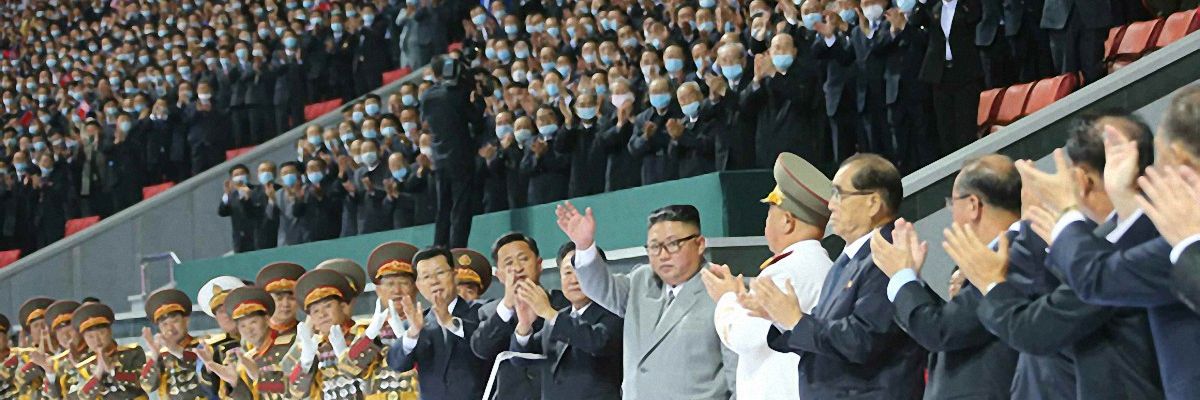North Korea’s military parade this weekend celebrating the 75th anniversary of the ruling Workers' Party was streamed for an international audience. It was expected to be the largest military parade in North Korea’s history. The event was pre-recorded Friday evening and streamed Saturday evening (Korea Standard Time) via Korean Central Television (KCTV), a state-owned broadcaster in North Korea.
In his speech, Chairman Kim Jong Un struck a somber and introspective tone. He repeatedly thanked the North Korean people for withstanding the “harsh circumstances” of this year, shedding tears at one point. In a nod to the public health challenges stemming from the COVID pandemic and natural disasters, Kim gave special recognition to the People’s Army, calling its efforts “heroic.”
His message to the foreign audience was one of measured defiance. He avoided being overly provocative, choosing instead to let the military parade do the talking. Indeed, nuclear experts were looking for clues to a new strategic weapon that Kim Jong Un promised in his new year speech. And they were not disappointed: North Korea unveiled a new 11-axle intercontinental-range ballistic missile (ICBM) at the parade, adding to North Korea’s growing nuclear and chemical arsenal.
This is the latest reminder that the longer the world waits, the more dangerous the Korean Peninsula will become. Any escalation in tension on the Korean Peninsula — home to the original “forever war” — would be incredibly deadly. The Congressional Research Service estimates that 300,000 would die in the first days of fighting through conventional weapons alone.
Any conflict with North Korea would have immediate consequences on American economy as well. The 2018 study by the Economic Intelligence Unit found that a war on the Korean peninsula would destroy 25,000 direct and indirect auto jobs in the United States in its first year. At a time when the U.S. economy is contracting due to the COVID pandemic, the last thing Americans need right now is an accidental conflict between two nuclear-armed states.
So what should the United States do?
Rather than overreact to Pyongyang’s predictable display of force, Washington should focus on the underlying cause of North Korea’s behavior: its geopolitical insecurity. Such concern will not disappear overnight. But trying to reach peace on the Korean Peninsula, as stated in the joint statement of the Singapore Summit, is impossible without addressing North Korea’s perennial need for bombs as a security guarantee. One way to do this is by declaring the seven-decades long Korean War over and signing a peace treaty to end that chapter of violence between the United States, South Korea, North Korea, and China.
The broader question is in defining the United States’ core strategic interests in the region. Is it indefinite militarism that so clearly benefits the military-industrial complex at the expense of lasting peace and stability in East Asia? So far, the United States appears to be more fixated on maintaining 28,500 U.S. troops in South Korea than answering the basic question of to what end.
The long-term goal of U.S. grand strategy should be to facilitate the creation of a peaceful global order consisting of fully sovereign states capable of providing for their own security, rather than to perpetuate dependency in American military or American weapons.
In this weekend’s parade, Kim Jong Un said he would develop nuclear weapons in order to “defend the rights to independence and existence.” It is time for Washington to be equally honest about U.S. interests in the region.
















